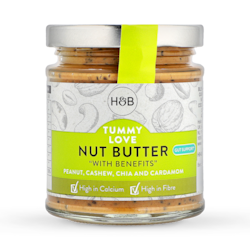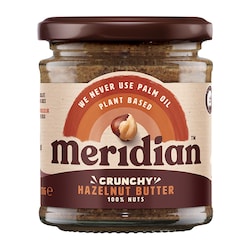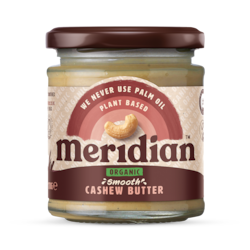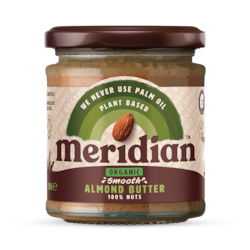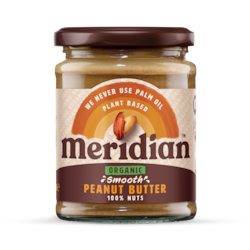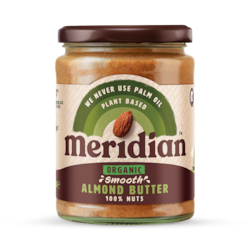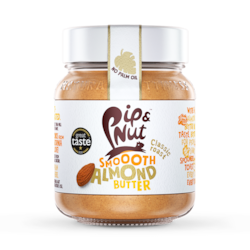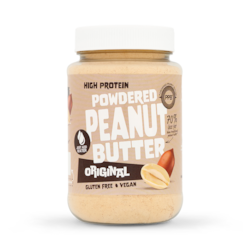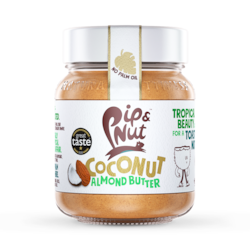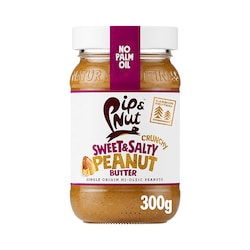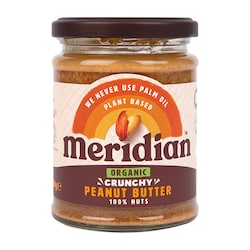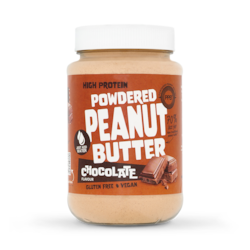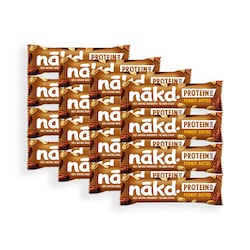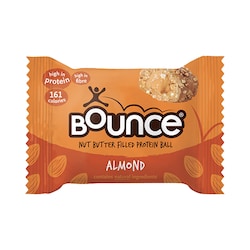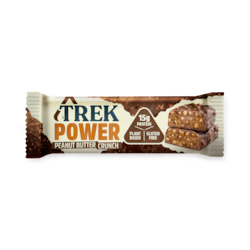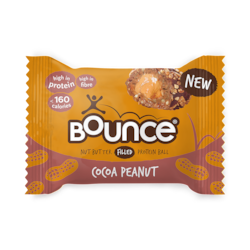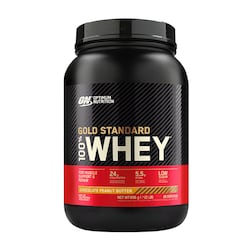15% off £30 OR 20% off £40
Almond butter benefits
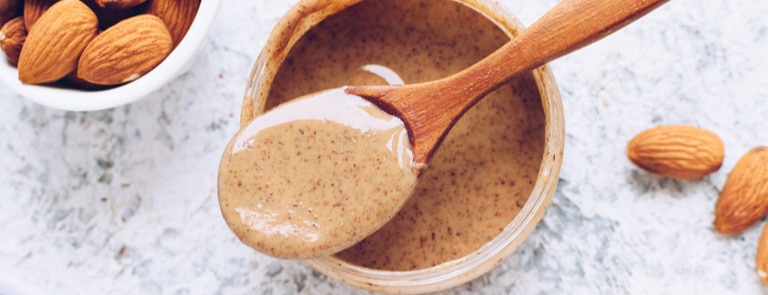
What is almond butter?
Almond butter is one of just several nut butters that are an alternative to the classic nut butter, peanut butter.
Almond butter is one of those trending ingredients of the moment, so much so that over the last 10 years, interest in almond butter grew by more than 300%.
What’s more, the almond butter market is predicted to double in the next four years.1
Almond butter is made from almonds and very few other ingredients.
The almonds that are used can be used raw or roasted to give a slight variation on the taste.
There are quite a few almond butter recipes out there, but on the whole, the main ingredients are almonds and salt that are ground down in the food processor to make a nut butter paste.
Some recipes add cinnamon and vanilla to add a touch of depth and sweetness to the almond butters.2
Summary
- Almond butter is just one of several nut butters on the market
- Interest in almond butter grew by 300% over the last 10 years
- It’s made from roasted or raw almonds that have been blended to form a paste
Is almond butter healthier than peanut butter?
Not necessarily, although it tends to be the assumption that’s often made by people.
Peanut butter happens to contain less monosaturated fat than almond butter - 25% less.3
However, monosaturated fat is classed as being a healthy dietary fat that keeps you feeling full and satisfied after meals.
So if you want to stay fuller for longer and not snack between meals, the better option is almond butter because it contains around 2g of monosaturated fat per 1 tablespoon serving.
Both peanut and almond butters contain a similar amount of calories.
Both contain around 100 calories for 1 every tablespoon of spread.
But when it comes to the vitamin front, almond butter trumps peanut butter, and for a number of vitamins and minerals too.
It also happens to contain more fibre. More details on this below.
Summary
- There are numerous almond butter vs peanut butter pros and cons
- Peanut butter contains 25% less monosaturated fat than almond butter
- They both contain a similar amount of calories
What does almond butter do for your skin?
Almond butter is believed to be able to help aid skin against the sun’s damaging UV rays.
This is due to the fact it contains Vitamin E, a powerful antioxidant that helps combat the negative effects of free radicals produced by the metabolism of food and toxins in the environment.4,5
Almond butter and dark circles
- Put some raw almonds in a blender until smooth.
- Apply the butter around eyes.
- Leave on for 20 minutes and wash off.
- Use daily.
Almond butter and skin ageing
- Make a fresh batch of almond butter.
- Add a few drops of olive oil or coconut oil.
- Apply the paste on the skin and leave for 20 minutes.
- Wash with water.
- Use twice a week.
Almond butter and skin cleansing
- Make fresh almond butter and apply on skin.
- With a wet cotton ball, cleanse your skin using gentle swipes.
- Wash off with warm water to avoid greasiness.
Handpicked content: Why your body – and beauty - needs Vitamin E
Is almond butter good for weight loss?
Eating spoonfuls of almond butter isn’t going to make you lose weight.
But if it’s enjoyed in moderation (i.e. two tablespoons a day) it can help you feel fuller for longer and therefore less prone to snacking.
Studies have shown having as little as an ounce of almonds, which is the equivalent of two tablespoons of almond butter, for a daily snack produces feelings of satiety.
What’s more, consuming lots of Omega-6s, which can promote inflammation, may also hinder metabolic health, which can potentially make it harder to lose weight.
One ounce of almond butter contains 3,326mg of Omega-6 fatty acids, which is another reason to enjoy it in moderation.6
Summary
- The Vitamin E that’s naturally present in almonds mean almond butter can have skin-boosting properties
- You can use it to help reduce dark undereye circles
- It may also help fight the signs of ageing and help unblock pores
5 benefits of almond butter
-
It’s highly nutritious
Almond butter is renowned for its magnesium, iron, Vitamin E, riboflavin and calcium levels.
It’s also high in those heart-healthy monounsaturated fatty acids.
One tablespoon of almond butter contains:7
| Energy | Fat | Saturated | Carbs | Fibre | Sugar | Protein | Magnesium | Iron | Vitamin E | Riboflavin | Calcium | |
|---|---|---|---|---|---|---|---|---|---|---|---|---|
| Amount | 96kcal | 8.9g | 1.1g | 3g | 1.7g | 1g | 3.4g | 44.6mg | 0.6mg | 3.87mg | 0.2mg | 55.5mg |
-
It’s good for heart health
Almond butter contains a good balance of monounsaturated and polyunsaturated fats AKA healthy fats.
According to research published in Lipids in Health and Disease, these fats help reduce the risk of cardiovascular disease by lowering blood pressure and cholesterol. 8
Meanwhile, research in the Journal of Food Science and Technology concluded it may lower cholesterol by reducing the development of plaques that clog the arteries.
Handpicked content: Is it all about healthy fats now?
-
It’s good for bone health
This is due to the fact that of all nuts, almonds are among the highest in calcium.
A handful of almonds (around 22 nuts) provides you with around 8% of your daily Recommended Dietary Intake (RDI) of calcium.9
Calcium is vital for healthy bones and teeth, and eating almond butter or almonds, as well as dark leafy greens, can help boost your calcium levels and support your bone health.
Handpicked content: What is calcium deficiency
-
It can help control blood glucose levels and keep you regular
A serving of 22 almonds contains around 4g of fibre, which helps control blood glucose levels, maintain healthy bowel function and lower cholesterol, as it helps to draw cholesterol away from the body.10
Women should aim for 25g of fibre a day, while men should consume 38g.
One serving of almond butter alone gives women about one-sixth of their required daily fibre, and about one-tenth of what men need.
Handpicked content: What is fibre?
-
It may help with diabetes
Studies have shown that incorporating almond butter into your daily diet can potentially help reduce the symptoms of diabetes.
Almonds are proven to improve insulin response in the body, which can lead to lower blood sugar levels.11
Almond butter also contains high levels of magnesium, which can help reduce the risk of developing diabetes due to the fact magnesium deficiencies are often seen in people with diabetes.
A deficiency can occur with type 1 and type 2 diabetes, but appears to be more common with type 2.
Low levels of magnesium are associated with insulin resistance.12
Handpicked content: Keeping your blood sugars balanced with food
Summary
- Numerous health benefits have been linked to almonds/almond butter
- It’s packed full of vitamins and minerals
- Because of this, it can deliver health benefits, including reduced cholesterol levels and stronger bones
A final few words about almond butter…
The nut butter market has expanded to include more choices than just good old peanut butter.
As well as being uber trendy, almond butter has been linked to numerous health benefits because of its almond content.
These benefits range from helping you lose weight by making you feel fuller for longer, to reducing cholesterol levels and boosting skin health.
Are you already an almond butter convert or is it going to find its way in your shopping basket when you do your next shop?
Following on from the almond theme, take a look at this article, ‘Benefits of almond milk for skin.’
Last updated: 3 September 2021
- https://www.thehealthy.com/nutrition/is-almond-butter-healthy/
- https://www.inspiredtaste.net/46333/homemade-almond-butter/-
- https://www.eatthis.com/peanut-butter-vs-almond-butter/
- https://www.today.com/style/5-best-skin-foods-eat-your-way-beautiful-t103276
- https://stylesatlife.com/articles/almond-butter-benefits/
- https://www.onegreenplanet.org/natural-health/is-almond-better-really-all-that-better-for-you-than-peanut-butter/
- https://www.womenshealthmag.com/food/a30105531/almond-butter-vs-peanut-butter/
- https://www.thehealthy.com/nutrition/is-almond-butter-healthy/
- https://www.thehealthy.com/nutrition/is-almond-butter-healthy/
- https://www.thehealthy.com/nutrition/is-almond-butter-healthy/
- https://stylesatlife.com/articles/almond-butter-benefits/
- https://www.healthline.com/health/diabetes/magnesium-and-diabetes


